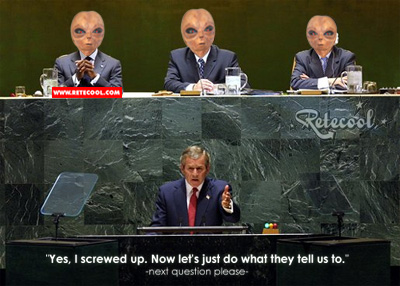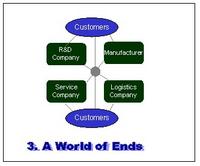|
This is my dynamic, frequently updated homepage. This is a NewsLog, also known as a WebLog or Blog.
Everything is evolving, so don't assume too much.
People to watch:
Adina Levin
Andrius Kulikauskas
Britt Blaser
Catherine Austin Fitts
Chris Corrigan
Clay Shirky
Dan Gillmor
Dave Pollard
David Allen
David Weinberger
Dewayne Mikkelson
Dina Mehta
Doc Searls
Elisabet Sahtouris
Elizabeth Lawley
Euan Semple
Florian Brody
Frank Patrick
Gen Kenai
George Dafermos
George Por
Graham Hancock
Greg Elin
Hazel Henderson
Heiner Benking
Inspector Lohman
Jean Houston
Jerry Michalski
Jim McGee
Jim Moore
John Abbe
John Perry Barlow
John Robb
Joi Ito
Jon Husband
Jon Lebkowsky
Jon Udell
Jonathan Peterson
Judith Meskill
Julian Elvé
Julie Solheim
Kevin Marks
Lawrence Lessig
Leif Smith
Letecia Layson
Lilia Efimova
Lisa Rein
Marc Canter
Mark Oeltjenbruns
Mark Pilgrim
Mark Woods
Martin Dugage
Martin Roell
Mary Forest
Matt Mower
Max Sandor
Michael Fagan
Mike Owens
Mikel Maron
Mitch Kapor
Mitch Ratcliffe
Nathalie dArbeloff
Netron
Noam Chomsky
Paul Hughes
Peter Kaminski
Phil Wolff
Philippe Beaudoin
Ray Ozzie
Raymond Powers
Rebecca Blood
Roger Eaton
Roland Tanglao
Ross Mayfield
Scott Lemon
Sebastian Fiedler
Sebastien Paquet
Skip Lancaster
Spike Hall
Steven Johnson
Stuart Henshall
Thomas Burg
Thomas Madsen-Mygdal
Thomas Nicholls
Timothy Wilken
Todd Suomela
Tom Atlee
Tom Munnecke
Tom Tomorrow
Ton Zijlstra
Lionel Bruel
Loic Le Meur
Nancy White
Mark Frazier
Merlin Silk
Robert Paterson
Colby Stuart
Nova Spivack
Dan Brickley
Ariane Kiss
Vanessa Miemis
Bernd Nurnberger
Sites to watch:
Edge
Junto
Absara
Rhizome
Nanodot
HeadMap
Openworld
FutureHi
Imaginify
Do No Harm
BoingBoing
Smart Mobs
Webcamorama
MetaFilter
NotThisBody
Disinfopedia
YES Magazine
Collective Web
WorldChanging
Disinformation
Escape Velocity
Space Collective
Friendly Favors
Emergent by Design
Independent Media
Global Ideas Bank
Forbidden Science
Greater Democracy
ThoughtsOnThinking
Disclosure Project
Explorers Foundation
Manufacturing Dissent
Collective Intelligence
Action without borders
Free Expression Network
Co-intelligence Institute
Electronic Frontier Foundation
French:
Emmanuelle
Manur
Elanceur
Loeil de Mouche
IokanaaN
Blog d'Or
Le Petit Calepin
GeeBlog
Absara
Guillaume Beuvelot
Ming Chau
Serge Levan
Jean Michel Billaut
C'est pas Mécanique

I live in Toulouse, France where the time now is:
01:06
Unique Readers:

Primarily
Public Domain
Everything I've written here is dedicated to the
Public Domain.

The quotes from other people's writings, and the pictures used might or might not be copyrighted, but are considered fair use. Thus, overall, this weblog could best be described as being:
Primarily Public Domain. |
Syndication:
 ![Validate my RSS feed [Valid RSS]](http://www.newciv.org/pic/valid-rss.png)
|
| Wednesday, January 21, 2004 |  |
|
|
|
 Ha, this is cool. Aerogel is a weird and wonderful material that looks like solid smoke and is the lightest solid substance we know. Only a little heavier than air. 0.003 grams per cubic centimeter. 1000 times less dense than glass. And it is made of 99.8% air. But yet it is the most efficient insulator we know, 39 times more insulating than the best fiberglass insulation. And it is very strong, able to carry 2,000 times its own weight without damage. And non-toxic. It was invented in the 1930s, but was largely forgotten until somebody at JPL in the 1980s needed a material that could gather comet particles that might be moving three to six miles per second, without destroying either them or the collector. Now it is being used frequently in space probes, and you can get arctic clothing that uses it as insulation. Articles: NY Times, SpaceDaily, and JPL has information and some cool pictures. And here's a company selling it. It is still very expensive, though. Ha, this is cool. Aerogel is a weird and wonderful material that looks like solid smoke and is the lightest solid substance we know. Only a little heavier than air. 0.003 grams per cubic centimeter. 1000 times less dense than glass. And it is made of 99.8% air. But yet it is the most efficient insulator we know, 39 times more insulating than the best fiberglass insulation. And it is very strong, able to carry 2,000 times its own weight without damage. And non-toxic. It was invented in the 1930s, but was largely forgotten until somebody at JPL in the 1980s needed a material that could gather comet particles that might be moving three to six miles per second, without destroying either them or the collector. Now it is being used frequently in space probes, and you can get arctic clothing that uses it as insulation. Articles: NY Times, SpaceDaily, and JPL has information and some cool pictures. And here's a company selling it. It is still very expensive, though.
[ Science | 2004-01-21 14:10 | | PermaLink ] More >
|
|
|
|
 From Euan: From Euan:Chris Corrigan has been doing some interesting bloging recently about circles and quotes this from Danish polymath Piet Hein:
Man is the animal that draws lines which he himself then stumbles over. In the whole pattern of civilization there have been two tendencies, one toward straight lines and rectangular patterns and one toward circular lines. There are reasons, mechanical and psychological, for both tendencies. Things made with straight lines fit well together and save space. And we can move easily - physically or mentally - around things made with round lines.
Spookily I read the following this morning from Alan Watts:
Civilized human beings, and Westerners in particular, are always trying to straighten things out and put them in rectilinear boxes. This arises out of the Greek superstition that there are three dimensions of space and from Euclid's brutally oversimplified fantasies of a world consisting of points, lines, surfaces, circles and cubes. It is hard to persuade and educated Westerner that Euclid was simply a fantast and that his so-called geometry had nothing to do with measuring the earth, but only with working out the rules of his own rather rigid and simple mind. Earth wiggles, water streams and waves, and nature in general dances and swings, but Euclid's mind never reached the biological level. It stopped in the purely crystalline stage of evolution. This is why generation after generation of school children have been bamboozled into the notion that a straight line is simpler, and thus more intelligible, than a wiggle. Ever after we have been trying to subjugate all experience, knowledge, and action to the supposed clarity and intelligibility of straight lines.
from Alan Watts' essay What On Earth Are We Doing? Here's to wiggles!
[ Patterns | 2004-01-21 14:32 | | PermaLink ] More >
|
|
| Tuesday, January 20, 2004 |  |
|
|
|
  Thomas mentions Russian art group AES that produces interesting and usually controversial pieces. Like the Islamic Statue of Liberty on the left. More here. The picture on the right is from a piece called "Suspects". There are 14 pictures of young Russian girls. 7 of them are in prison, convicted of brutal and unnecessary murders. 7 of them are normal students. Can you see which ones are which? And if you can't, what does that mean? I can give you my guess, but chances are I'm off by a few. Thomas mentions Russian art group AES that produces interesting and usually controversial pieces. Like the Islamic Statue of Liberty on the left. More here. The picture on the right is from a piece called "Suspects". There are 14 pictures of young Russian girls. 7 of them are in prison, convicted of brutal and unnecessary murders. 7 of them are normal students. Can you see which ones are which? And if you can't, what does that mean? I can give you my guess, but chances are I'm off by a few.
[ Culture | 2004-01-20 09:05 | | PermaLink ] More >
|
|
|
|
Dina passes on some excellent stuff about social entrepreneurship and how it might relate to social software. Let me just post the whole thing here, that's easiest.
Judith, who has recently taken over writing at the Social Software Blog, has a neat summary of a wonderful paper - The Meaning of Social Entrepreneurship by J. Gregory Dees, for the Stanford Business School's Center for Social Innovation. Its a paper written five years ago on 'business' and 'social' entrepreneurship.
A valuable find and timely reflection when there is so much activity around social software and social networks. It made me reflect on who really is a true Social (Software) Entrepreneur, and provided some clues into defining the very term. Quoting from Judith's post : "In this paper Professor Dees gives a brief history of the evolving definition of 'entrepreneur': early 19th century French Economist, Jean-Baptiste Say: "The entrepreneur shifts economic resources out of an area of lower and into an area of higher productivity and greater yield." early 20th century economist Joseph Schumpeter: "the function of entrepreneurs is to reform or revolutionize the pattern of production." They can do this in many ways: "by exploiting an invention or, more generally, an untried technological possibility for producing a new commodity or producing an old one in a new way, by opening up a new source of supply of materials or a new outlet for products, by reorganizing an industry and so on."
Peter Drucker: "the entrepreneur always searches for change, responds to it, and exploits it as an opportunity." Dees goes on to interpret Drucker's definition as: "Entrepreneurs have a mind-set that sees the possibilities rather than the problems created by change." Howard H. Stevenson, a leading theorist of entrepreneurship at Harvard Business School, defines the heart of entrepreneurial management as "the pursuit of opportunity without regard to resources currently controlled." Professor Dees - borrowing "the notions of value creation from Say, innovation and change agents from Schumpeter, pursuit of opportunity from Drucker, and resourcefulness from Stevenson" - asserts that 'social entrepreneurs' play the role of change agents by: * Adopting a mission to create and sustain social value (not just private value),
* Recognizing and relentlessly pursuing new opportunities to serve that mission,
* Engaging in a process of continuous innovation, adaptation, and learning,
* Acting boldly without being limited by resources currently in hand, and
* Exhibiting a heightened sense of accountability to the constituencies served and for the outcomes created. In conclusion Dees states: "Social entrepreneurship describes a set of behaviors that are exceptional. These behaviors should be encouraged and rewarded in those who have the capabilities and temperament for this kind of work. We could use many more of them. Should everyone aspire to be a social entrepreneur? No. Not every social sector leader is well suited to being entrepreneurial. The same is true in business. Not every business leader is an entrepreneur in the sense that Say, Schumpeter, Drucker, and Stevenson had in mind. While we might wish for more entrepreneurial behavior in both sectors, society has a need for different leadership types and styles. Social entrepreneurs are one special breed of leader, and they should be recognized as such. This definition preserves their distinctive status and assures that social entrepreneurship is not treated lightly. We need social entrepreneurs to help us find new avenues toward social improvement as we enter the next century."
Judith ends by asking : "Based on Professor Dees definitions, both borrowed and advanced, of 'Social Entrepreneurship' - Who do you think are the 'Social Entrepreneurs' of the 'Social Software' movement?" One name from India that comes to mind is Rajesh Jain. He's a true change agent, in his success at building sustainable collaborative systems and in his vision of 'socializing' India through technology. Help Judith build a list - who would you choose and why - do leave a comment here or at Judith's blog.
Super. I want to be a Social Entrepreneur too.
[ Information | 2004-01-20 14:21 | | PermaLink ] More >
|
|
| Monday, January 19, 2004 |  |
|
|
|
I've upgraded my RSS feed. First of all from version 0.91 to 2.0. And I've added pictures to the feed.
I was considering making several versions, with varying amount of detail, and with or without pictures. But I would guess most people prefer just getting the full post the way it actually looks.
If anything breaks for anybody, or if I'm wrong, and some of you actually prefer not getting any pictures, let me know, and I'll add options.
Anyway, it is still not the full full stories all the time. Some stories potentially have a full text, if the text is particularly long, or there is some reference article attached. And some stories might have a bigger picture in the full story. In those cases there will normally be a "More" link at the bottom of the story that is included in the feed.
[ Diary | 2004-01-19 14:58 | | PermaLink ] More >
|
|
|
|

So, to test pictures right away... Is this maybe who Bush works for?
[ Politics | 2004-01-19 15:13 | | PermaLink ] More >
|
|
|
|
 Ray Kurzweil on the nature of order, via SynEarth: Ray Kurzweil on the nature of order, via SynEarth:The concept of the "order" of information is important here, as it is not the same as the opposite of disorder. If disorder represents a random sequence of events, then the opposite of disorder should imply "not random." Information is a sequence of data that is meaningful in a process, such as the DNA code of an organism, or the bits in a computer program. Noise, on the other hand, is a random sequence. Neither noise nor information is predictable. Noise is inherently unpredictable, but carries no information. Information, however, is also unpredictable. If we can predict future data from past data, then that future data stops being information. We might consider an alternating pattern ("0101010. . . .") to be orderly, but it carries no information (beyond the first couple of bits). Thus orderliness does not constitute order because order requires information. However, order goes beyond mere information. A recording of radiation levels from space represents information, but if we double the size of this data file, we have increased the amount of data, but we have not achieved a deeper level of order. Order is information that fits a purpose. The measure of order is the measure of how well the information fits the purpose. In the evolution of life-forms, the purpose is to survive. In an evolutionary algorithm (a computer program that simulates evolution to solve a problem) applied to, say, investing in the stock market, the purpose is to make money. Simply having more information does not necessarily result in a better fit. A superior solution for a purpose may very well involve less data. The concept of "complexity" is often used to describe the nature of the information created by an evolutionary process. Complexity is a close fit to the concept of order that I am describing, but is also not sufficient. Sometimes, a deeper order—a better fit to a purpose—is achieved through simplification rather than further increases in complexity. For example, a new theory that ties together apparently disparate ideas into one broader more coherent theory reduces complexity but nonetheless may increase the "order for a purpose" that I am describing. Indeed, achieving simpler theories is a driving force in science. Evolution has shown, however, that the general trend towards greater order does generally result in greater complexity. Thus improving a solution to a problem—which may increase or decrease complexity—increases order. That's pretty profound. And obvious at the same time. Greater order, of the kind of evolving life and intelligence, typically means more complexity. But of course complexity by itself doesn't produce emergent order. Sometimes it does, and sometimes simplicity does the trick. The key is whether we get to the deeper level of order. Whether problems are being solved at a higher level.
[ Science | 2004-01-19 15:30 | | PermaLink ] More >
|
|
| Sunday, January 18, 2004 |  |
|
|
|
 Via BoingBoing a gallery of photos by Edward Burtynsky, showing the horrible beauty of the machinery, landscape and decaying waste left behind by a large-scale industrial society. Via BoingBoing a gallery of photos by Edward Burtynsky, showing the horrible beauty of the machinery, landscape and decaying waste left behind by a large-scale industrial society.
[ Culture | 2004-01-18 09:48 | | PermaLink ] More >
|
|
|
|
Doc Searls:Eric Raymond: How webbing books doesn't hurt sales. Interesting stuff about "identity goods" among other relevant arcana.
Data: Cluetrain continues to sell at Amazon (listed at that link as #928) while the whole thing is online as well. I hope the principles behind this become very public and widespread common sense. It not only doesn't hurt sales to give a book away on the net, it probably helps them. And the same applies to other media. Anyway, here's some of what Eric Raymond says:"My four books do not a controlled experiment make, but the thirteen years of experience with simultaneous print and Web publication that I've had suggests that Web availability has boosted the sales of the print versions tremendously. And my publishers agree. Even in 1991 I didn't get resistance from MIT press, and Addison-Wesley was positively supportive of putting my most most recent one on the Web.
I'm one of a handful of technical-book writers who publishers treat like rock stars, because I have a large fan base and my name on a cover will sell a book in volumes that are exceptional for its category (for comparison my editor at AW mentions Bruce Eckel as another). I'm not certain my experience generalizes to authors who aren't rock stars. On the other hand, it's more than possible that I'm a rock star largely because I have been throwing my stuff on the Web since 1991. It's even likely — after all, I was next to an unknown when I edited The New Hacker's Dictionary." Making your stuff easily and widely available is a great way of becoming known, and a great way of becoming somebody who's work sells well. It shouldn't even be any kind of surprise.
[ Information | 2004-01-18 09:49 | | PermaLink ] More >
|
|
| Saturday, January 17, 2004 |  |
|
|
|
 The Moller SkyCar seems to be making progress. If you don't know what it is, it is a project to make a flying car about the same size and price as a big Mercedes automobile. But which can fly 500km/h, by auto-pilot, and which can hover in the air and land just about anywhere. The Moller SkyCar seems to be making progress. If you don't know what it is, it is a project to make a flying car about the same size and price as a big Mercedes automobile. But which can fly 500km/h, by auto-pilot, and which can hover in the air and land just about anywhere.
Paul Moller's company has worked on it for years. It is a significant enginineering task. They've spent 100 million dollars on R&D, which is really very little in this context. Recently they've done successful hover tests, and expect to do full flight testing within 5 months.
Seems like it would at the earliest be available for real use in about 4 years. But you can reserve yours right now if you can afford it. Various things will need to happen before it can be in normal use, as it is intended to fly by computer control in designated highway corridors in the air. So that needs to be set aside, and the thing needs to be approved by the proper authorities.
And, yes, it guzzles gas. Per kilometer it won't be anything more than a regular car. But you're of course more likely to go shopping 100s of km away if you have one of these. Nevertheless, it is about time we get some flying cars.
[ Technology | 2004-01-17 06:46 | | PermaLink ] More >
|
|
|
|
 George Bush announced the intent to put humans on Mars. Which is primarily a good distractionary move now that an election is coming up, and he doesn't have to figure out how to pay for it. Aside from that it is a fine idea. George Bush announced the intent to put humans on Mars. Which is primarily a good distractionary move now that an election is coming up, and he doesn't have to figure out how to pay for it. Aside from that it is a fine idea.
But with the kind of technology that is envisioned for the purpose it is very difficult. In part that is because the people who go there need to bring equipment and fuel for getting back again. And it takes a lot of fuel to take off from Mars. So, one alternative, but somewhat controversial idea would be that it initially would be a one-way ticket rather than a return ticket. Article here in NY Times (registration required). It is really not a problem finding volunteers. They need to bring enough equipment to survive and be able to start utilizing Martian resources. And every couple of years new supplies and volunteers can arrive. Until the colony becomes self-sufficient.
And (via Le Danois) somebody should maybe think a bit bigger and study this How-To for Terra-Forming. Mars is quite well suited for a large scale transformation into a green and lively planet. Which it might or might not have been in the past. Of course it would be sensible to thoroughly investigate what is already there, before re-formatting and re-booting the whole place.
[ Science | 2004-01-17 16:41 | 0 comments | PermaLink ]
|
|
|
|
 Why would an educated person, a lawyer, and a mother of two choose to strap explosives to her body and go and blow up herself and a lot of random innocent people? Why would an educated person, a lawyer, and a mother of two choose to strap explosives to her body and go and blow up herself and a lot of random innocent people?
Hanadi Jaradat did just that in October, killing 21 Israelis in Haifa.
Artists Gunilla Skoeld Feiler from Sweden and Israeli born Dror Feiler created an artwork titled "Snow White and the Madness of Truth" for an exhibition in Stockholm, to make people ponder the incomprehensibility of this. On a pool of blood a little sailboat is floating, with a picture of a smiling Hanadi Jaradat as its sail. "When I saw her picture in the paper, I thought she looked like Snow White, that's why I gave that name to the piece" said Gunilla Feiler.
The Israeli ambassador didn't ponder the incomprehensibility of the scenario. He went amock and destroyed the piece the moment he saw it, and subsequently got kicked out of the museum. I suppose that illustrates well another angle of the problem. And it instantly made the art piece much more famous than it could have been otherwise. Anyway, he should probably find himself another line of work.
[ Culture | 2004-01-17 17:14 | | PermaLink ] More >
|
|
| Friday, January 16, 2004 |  |
|
|
|
 Here an article by Denise Breton and Christopher Largent about conditioning by rewards and punishments. The page shows badly in my browser, so I'm taking the liberty of including the text at the bottom. They mention the extensive research of Alfie Kohn on the negative effects of reward/punishment conditioning. Here are some of the problems: Here an article by Denise Breton and Christopher Largent about conditioning by rewards and punishments. The page shows badly in my browser, so I'm taking the liberty of including the text at the bottom. They mention the extensive research of Alfie Kohn on the negative effects of reward/punishment conditioning. Here are some of the problems: • Rewards and punishments teach power-over relations. That’s the model. And when being on the receiving end of this model gets tiresome, we begin the mad race to be on top.
• Rewards and punishments corrupt human relationships, starting with the relation between those "higher" and "lower" in the reward-punishment hierarchy. Those under can’t tell the truth to those above them for fear of how "bad news" might further reduce their underling status. Even more commonly, those above don’t want the truth to be told. A May 1999 Frontline on the military career of Admiral Leighton "Snuffy" Smith, for instance, featured Smith confessing that during the Vietnam War (when he was a pilot), his superior wouldn’t let him report that he had failed to achieve his bombing objective. The higher-ups didn’t want the truth; they wanted only "we’re winning the war" reports.
• Rewards and punishments teach image management. Appearing to be good is more important than being good.
• Rewards and punishments require surveillance. We must be seen to be doing good or doing bad to get what we "deserve," so someone must be observing us—all the time.
• Rewards and punishments replace internal motivation with external motivation. This is a biggie, and the crux of it all. We don’t do what our inner guides tell us, what we love to do, or what we feel is right. We do what rewards us outwardly. Our inner motivation, what we get from our souls, is not controllable. For us to be made controllable, we must be unplugged from our soul source, and something external must be put in its place—something others can control. Given this agenda, rewards and punishments are inevitably soul-denying.
• Rewards and punishments teach selfish manipulation: "What’s in it for me?" "Can I avoid being caught?" In Beyond Discipline (p. 22), Alfie Kohn quotes eighteenth-century philosopher Immanuel Kant: "If you punish a child for being naughty and reward him for being good, he will do right merely for the sake of the reward; and when he goes out into the world and discovers that goodness is not always rewarded, nor wickedness always punished, he will grow into a man who only thinks about how he may get on in the world, and does right or wrong according as he finds advantage to himself." It is rather obvious, really. The conditioning approach pre-assumes that you are a mindless robot who can't tell right from wrong, so you need to be trained into the proper pavlovian responses. Right answer: you get a piece of cheese. Wrong answer: you get an electric shock. That is a horribly barbaric view, and a false one. But, seeing that this is the predominant method used in the world of educating us into knowing how to act, it is no great wonder at all that we're rather messed up. • Rewards and punishments hide real consequences, replacing them with artificial reward-punishment consequences. CEOs don’t think about real-world consequences—polluted air and water or human suffering; they think about financial rewards.
• Rewards and punishments replace inner integrity with the model that everyone "has a price." When people work only for rewards and behave selfishly, it doesn’t mean that they’re bad people or that humanity is innately greedy. It means they’re behaving exactly the way the culture has programmed them to behave—and then told them that they’re bad for doing it. How’s that for crazy-making? Well, read the whole thing, this is vital stuff. And I'll give you a gold star.
[ Patterns | 2004-01-16 13:35 | | PermaLink ] More >
|
|
|
|
Languages and accents can be fun to study. This site has 297 different people from a great variety of different places read the same English sentence.
When I did improv acting some years ago, I was studying accents a bit. In an interesting roundabout way, as one would try to sound like an English speaker who comes from India or Spain or France or something, without making any attempt of learning the actual language. Native speakers of different languages will do a bunch of very specific things when they speak. A Spanish speaker will speak very forward in the mouth for example. So there are courses and tapes for learning just the accent, by mimicking the mechanical aspects of how one speaks.
On the subject of languages, for a moment I got the idea that it would be fun to try to learn the numbers in a great many languages, or make a site that catalogued them. No useful purpose, really, but it could be some kind of hobby. Not that I need one. Well, I'm glad I didn't, because somebody already did it really thoroughly. Here are the numbers from 1 to 10 in over 4000 languages. Sheesh, I can only count in about nine different languages.
[ Culture | 2004-01-16 17:41 | | PermaLink ] More >
|
|
|
|
 Maglev trains is one of the things we should be having by now here in "the future". Well, there are a very few. And now, what is probably the world's fastest train started last week connecting Shanghai with Pudong at 430km/h. 30km in 7 minutes. But the Chinese has put the plan on hold for the moment for the projected 1,290km Shanghai-to-Beijing line. Because it is all very expensive. Compared to normal trains, that is. Compared with planes, maglev travel stacks up quite favorably. Here's more about Maglevs. Maglev trains is one of the things we should be having by now here in "the future". Well, there are a very few. And now, what is probably the world's fastest train started last week connecting Shanghai with Pudong at 430km/h. 30km in 7 minutes. But the Chinese has put the plan on hold for the moment for the projected 1,290km Shanghai-to-Beijing line. Because it is all very expensive. Compared to normal trains, that is. Compared with planes, maglev travel stacks up quite favorably. Here's more about Maglevs.
[ Technology | 2004-01-16 18:04 | | PermaLink ] More >
|
|
|
|
 A minor update on my struggle with Budget-rent-a-car previously mentioned here, here and here. They actually, finally answered me. That is, I got a brief e-mail from a person at Cendant Corporation. Very brief, but friendly, apologizing for the late response, saying they would contact their French and German people to try to get a resolution. Now, as I previously mentioned, my bank has already gotten most of it resolved. I.e. they paid some money back. What is remaining is 800 euros. If they get me that back too, I'll be rather satisfied with the whole thing. I'll be back where I started, having rented a car and paid for it. And just wasted a lot of time, and stress. Of course they could decide to be really nice and actually pay me something for my undeserved trouble and extra expenses. A minor update on my struggle with Budget-rent-a-car previously mentioned here, here and here. They actually, finally answered me. That is, I got a brief e-mail from a person at Cendant Corporation. Very brief, but friendly, apologizing for the late response, saying they would contact their French and German people to try to get a resolution. Now, as I previously mentioned, my bank has already gotten most of it resolved. I.e. they paid some money back. What is remaining is 800 euros. If they get me that back too, I'll be rather satisfied with the whole thing. I'll be back where I started, having rented a car and paid for it. And just wasted a lot of time, and stress. Of course they could decide to be really nice and actually pay me something for my undeserved trouble and extra expenses.
I wonder if they responded because they realized how often my story comes up in the search engines, or if they simply didn't get around to it before, and it actually is standard policy to pleasantly try to help people resolve their problems. I might never know.
[ Diary | 2004-01-16 18:21 | | PermaLink ] More >
|
|
| Thursday, January 15, 2004 |  |
|
|
|
 Dave Pollard has a nice piece on The Future of Business. Dave Pollard has a nice piece on The Future of Business.Let's step back now from the perspective of the knowledge worker and look at how the business environment for corporations has changed in 2015. In the early 2000s, large corporations that were once hierarchical end-to-end business enterprises began shedding everything that was not deemed ‘core competency’, in some cases to the point where the only things left were business acumen, market knowledge, experience, decision-making ability, brand name, and aggregation skills. This 'hollowing out' allowed multinationals to achieve enormous leverage and margin. It also made them enormously vulnerable and potentially dispensable.
As outsourcing accelerated, some small companies discovered how to exploit this very vulnerability. When, for example, they identified North American manufacturers outsourcing domestic production to third world plants in the interest of 'increasing productivity', they went directly to the third world manufacturers, offered them a bit more, and then went directly to the North American retailers, and offered to charge them less. The expensive outsourcers quickly found themselves unnecessary middlemen. Now in 2015, the result is what Doc Searls and Dave Weinberger, two Internet experts, have called a World of Ends -- which in its business application means a disintermediated world where specialized businesses contract directly with each other to bring the benefits of globalization and the free market to consumers. The large corporations, having shed everything they thought was non 'core competency', learned to their chagrin that in the connected, information economy, the value of their core competency was much less than the inflated value of their stock, and they have lost much of their market share to new federations of small entrepreneurial businesses. Various forward-looking management gurus, like Tom Peters have been talking about this kind of change in the business and job world for a while. Everything will become more loosely connected and changing faster. No lifetime position in a stable company. Everybody will need to be able to market themselves, and will be likely to work on a succession of projects in the form of virtual companies that come together ad hoc to deal with a certain opportunity and that might well disband right afterwards. The change goes all the way up and down. Everybody has to think like an entrepreneur, constantly learning and looking for new opportunities. Constantly working their network, keeping up their repuation.- Your networks are critical: Your success will depend on who you know, but not necessarily who you know well. Because of a phenomenon known as 'the strength of weak links', your future employer, employees, customers and business partners are all likely to be two or three degrees of separation away from those you know personally. Who your associates know is probably more important, therefore, than who you know directly.
- You need to know how to run a business, from start-up to dissolution. Not the sheltered academic skills of large corporate administration, but the down-and-dirty skills of entrepreneurship, where every decision is make-or-break. Your network can help here, too. You're probably three times as likely to be self-employed or unemployed in 2015, as you are to be an employee of someone else, so you'll need these skills. All of it is of course both scary and exciting. And there are other possibilities of course, but this is quite likely how the capitalistic society is evolving. So, unless something fundamental changes, we'll all have to pay attention. If you'll keep thinking like a good employee you'll be more likely to be expendable and unemployed. If you think like a business person, and you get together a package of goods that the world actually needs - it might all be great. You might have as much chance of succeeding as any multinational company.
[ Organization | 2004-01-15 11:14 | | PermaLink ] More >
|
|
|
|
 Several people have mentioned the new documentary "The Corporation". It was screened at the 2003 Vancouver International Film Festival. It is premiering in a few theatres in Candada around now. Read the review, it is very cool. Several people have mentioned the new documentary "The Corporation". It was screened at the 2003 Vancouver International Film Festival. It is premiering in a few theatres in Candada around now. Read the review, it is very cool.A lot of documentaries get a rise out of their audience. Some even invoke social change, or at the least some serious reflection upon our place in the world. But I can safely say I've never seen an audience so moved, en masse, to explore actual social activism on a grand scale as the audience who watched this three hour masterwork. The first standing ovation I've seen delivered at the Vancouver Film Festival was not only deserved, but also very long, and what followed the screening overshadowed even that outpouring of emotion.
The Corporation could never have been made in the USA. It took a Canadian team to put this work together, and it'll take far more than legal threats and intimidation to kill it. An almost three hour look at the past, present and future of corporations as a business entity, you'd be forgiven for rolling your eyes and giving the thing a miss if you only had a loose synopsis to go on.
But where this documentary matters is in the details - the nasty, disgusting, gory details of what the corporation has done to this world, what it's doing today, and what we can expect it to do tomorrow if we don't get our freaking act together.
The extreme right 'love it or leave it' crowd are no doubt already starting to yell "Lefty propaganda," but this isn't an Anti-Bush attack on all things capitalist. This isn't hippy rhetoric or new age spin or a call to the communes. It isn't hoity toity technospeak or boring talking-head PBS filler. What The Corporation is, is a healthy dose of well-researched, deeply explored, stunning information that can not possibly leave you, as an audience member, in any condition but stunned, dismayed, and outraged.
Maybe you know it all already. If you're like me, you read the papers, you know who's buying who and that the unstoppable bulldozer of globalization is hurting a lot of people. If you're like me, you're disgusted that TV news has become a wrestling match to decide which party has the best 'spin', and you might have even learned enough about global politics to be sick to death of what you're seeing in the world today.
But The Corporation will teach you things you never dreamed of. it will change you. It will ruin your day, but give you reason to get up in the morning - determined to make change. I can't wait to see it, and I hope it somehow manages to get wide distribution, even in the U.S. I have no doubt it will play in the theatres here in France. Even Noam Chomsky shows in regular theatres here.
And for the record, I think corporations should be banned ASAP. Not business, not free enterprise, not groups of people doing things together, but the corporation as an artificial legal person.
[ Information | 2004-01-15 13:53 | | PermaLink ] More >
|
|
| Wednesday, January 14, 2004 |  |
|
|
|
 The pictures from Mars are pretty damn cool. Particularly the 360 degree QTVR version. Just like being there, I suppose. Seems to be lots of things to explore. As far as red rocks go. One of the ones lying just in front of the lander looks almost artificially angled to me. Would be fun if they had landed on top of an old ruin. The pictures from Mars are pretty damn cool. Particularly the 360 degree QTVR version. Just like being there, I suppose. Seems to be lots of things to explore. As far as red rocks go. One of the ones lying just in front of the lander looks almost artificially angled to me. Would be fun if they had landed on top of an old ruin.
I'm a bit skeptical about Mars. Meaning, I'm not sure I believe this is the most advanced space program. Maybe the most advanced that NASA is carrying out, and hats off to this success for them. But my guess is that there are more hidden groups with considerably more advanced technology, and that they've already been there. And quite possibly made sure that the public program only lands in a place where there's nothing embarrassingly strange within sight.
[ Science | 2004-01-14 03:00 | | PermaLink ] More >
|
|
|
|
More on the U.S. national debt, from Al Martin Raw, the article "Scoreboard 2003". Seems to be in the member area, but somebody sent me an e-mail copy.The total national debt of the United States on a fully realized basis, inclusive of federal, state, county and local debt stood at a record $20.613 trillion (83.73% of said debt having been created from 1981-92 and from 2001 to present.) The total public and private indebtedness of the United States ended the year 2003 at $39.384 trillion. The total public and private assets of the United States ended the year 2003 at $26.134 trillion. Thus, the United States by the end of 2003 has a negative net worth of approximately $13 trillion. The total debt service of the United States ended the year 2003 at 309.4% of GDP (Gross Domestic Product). These are numbers never before seen. This is a higher debt to gross domestic product ratio than any other country on earth, which still services its debt. Doesn't sound good. I'd like to see some other sources on that, of course. The periods he's mentioning, 81-92 and 2001 to the present, where 83.73% of the debt were generated is when Reagan and the two Bushes have been presidents.
[ Politics | 2004-01-14 03:20 | | PermaLink ] More >
|
|
|
|
 Via Metafilter, an article, "Terrorism's new Mecca" by Jessica Stern. It examines the causes of terrorism. Via Metafilter, an article, "Terrorism's new Mecca" by Jessica Stern. It examines the causes of terrorism.Several possible root causes have been identified, including, among others, poverty, lack of education, abrogation of human rights, the perception that the enemy is weak-willed. I've been interviewing terrorists around the world over the past five years. Those I interviewed cite many reasons for choosing a life of holy war, and I came to despair of identifying a single root cause of terrorism. But the variable that came up most frequently was not poverty or human-rights abuses, but perceived humiliation. Humiliation emerged at every level of the terrorist groups I studied — leaders and followers.
The "New World Order" is a source of humiliation for Muslims. And for the youth of Islam, it is better to carry arms and defend their religion with pride and dignity than to submit to this humiliation. Part of the mission of jihad is to restore Muslims' pride in the face of humiliation. Violence, in other words, restores the dignity of humiliated youth. Its target audience is not necessarily the victims and their sympathizers, but the perpetrators and their sympathizers. Violence is a way to strengthen support for the organization and the movement it represents. It rings true more than anything else. No, it is not people who "hate freedom". It is people who's family, who's culture, who's religion, who's countries, who's leaders have been humiliated. And it is people who's pride and dignity are more important to them than their lives. It shouldn't be that hard to understand. Stop carrying out programs of organized humiliation. Better yet, help these folks having something to be proud of.
[ Politics | 2004-01-14 03:42 | | PermaLink ] More >
|
|
| Tuesday, January 13, 2004 |  |
|
|
|
 I have meditated. I've done Tai Chi, Qi Gong, Kung Fu, DahnHak, Pranic Healing, Tensegrity and Access. I've been healed, acupuncturized, massaged, rebirthed, exorcised and hypnotized. I've done the Scientology advanced levels. I'm an NLP master. A Certified Clinical Hypnotherapist. I'm an energetic healer. I've seen hundreds of past lives. I have had out-of-body experiences, I've done astral traveling. I've been abducted by little grey aliens. I've talked with dead people. I've met my future selves. I've channeled, done automatic writing and psychic readings. I've seen the beginning of the universe, and the end. I've bent spoons and walked on burning coals. I've watched UFOs over Area 51. I've seen shamans and psychics and channelers. I've gotten all my questions answered. I came from Arcturus and I spent some time in the Orion Empire. I've talked to crystals, gotten aromatherapy, ayurvedics, color therapy. I only use holistic health care: naturopatics, homeopathy, herbs, oriental medicine. My DNA is supposedly evolving to 12 strands and I'm well on my way into the 5th dimension. I've gone to hundreds of rituals and danced, chanted, drummed and prayed. I've gone to sacred sites, feng shuied my house. I've gotten my horoscope analyzed many times, my numerology has been done, my palms read. The tarot has given me valuable insights, and I know what shape my chakras are in. And there's probably a lot more I'm forgetting. I have meditated. I've done Tai Chi, Qi Gong, Kung Fu, DahnHak, Pranic Healing, Tensegrity and Access. I've been healed, acupuncturized, massaged, rebirthed, exorcised and hypnotized. I've done the Scientology advanced levels. I'm an NLP master. A Certified Clinical Hypnotherapist. I'm an energetic healer. I've seen hundreds of past lives. I have had out-of-body experiences, I've done astral traveling. I've been abducted by little grey aliens. I've talked with dead people. I've met my future selves. I've channeled, done automatic writing and psychic readings. I've seen the beginning of the universe, and the end. I've bent spoons and walked on burning coals. I've watched UFOs over Area 51. I've seen shamans and psychics and channelers. I've gotten all my questions answered. I came from Arcturus and I spent some time in the Orion Empire. I've talked to crystals, gotten aromatherapy, ayurvedics, color therapy. I only use holistic health care: naturopatics, homeopathy, herbs, oriental medicine. My DNA is supposedly evolving to 12 strands and I'm well on my way into the 5th dimension. I've gone to hundreds of rituals and danced, chanted, drummed and prayed. I've gone to sacred sites, feng shuied my house. I've gotten my horoscope analyzed many times, my numerology has been done, my palms read. The tarot has given me valuable insights, and I know what shape my chakras are in. And there's probably a lot more I'm forgetting.
Now, to a New Age person all of that is rather normal. Not even particularly impressive. Most people who've followed some kind of metaphysical, spiritual, new age type of path for a number of years will have done a lot of this, and a lot of other things I didn't happen to run into.
And what is cool is that if I recognize somebody else as what can be loosely identified as a New Age Person, we can talk about any of this, and they will most likely not have any reservation about sharing experiences and insights. I don't have to prove anything, and it won't even be an issue. They will measure the truth by what it feels like.
But yet I'm also a bit tired of the New Age. Oh, I'll happily talk about any of this, and tell you what I think worked or didn't work, and why and how. And I enjoyed all of it. But my perspective has changed somewhat. I'm more focused on ordinary everyday life. I'm more skeptical. I'm more interested in keeping a little bit of a distance to the multiple possible explanations for why things are the way they are. I'm interested in bridging different realities and world views. While I live the life that is in front of me. Which is often quite ordinary, sometimes hard, and usually not particularly fantastic.
The New Age became a little too mainstream at some point. Where before it was a bit of an underground activity, pursuing experiences and wisdom out of the ordinary, where the rest of the world was really rigid, limited and analytical. But somehow it became something more watered-down, commonplace, lacking distinctions. So that New Age for many became synonymous with flakyness and lack of critical thinking. Or it became synomynous with "anything goes" and that any weird idea or practice is equally valid as any other. And it all became a good deal less useful. So, personally, I will continue to stretch the boundaries of my existence, and I will continue to choose the tools in my life that work, even if others think they're strange. But I'll probably evaluate things one at a time, and certainly avoid assuming that I'm part of a group that all shares the same views.
Life is a rather fantastic thing in the first place. Full of experiences and possibilities and insights. They might be small or large, deep or shallow. But you don't really need to invoke any fancy belief system to talk about it. The experiences and what you think and feel about them might be enough. And of course you can notice the patterns that link things together. But part of my different perspective is that I try to avoid having all the answers in advance, and rather keeping my mind open to the newness of things.
Now, as I write here in my blog, my new agey friends, or friends from specific metaphysical traditions, might well be puzzled that I wrap things up more than they would expect me to under other circumstances. I.e. I write a lot more conservatively and tentatively than I might otherwise. Referring sort of distantly to news items and books with interesting but theoretical subjects. Where I could just as well provide the straight dope. It is just that I don't necessarily think the dope is quite so straight as it might have seemed. And I no longer claim to know exactly what it is.
And then my more 'normal' friends might be puzzled that I sometimes write about strange hocus-pocus subjects. Borderland weirdness, unproven pseudo-science, conspiracy theories and general superstition. And I might well lose some of them, if they expect that I should just write about RSS Aggregators and blog programming. But I guess I can live with that.
I write about whatever I feel like. But my compromise is that I try to write so that multiple types of audiences might read it. I do believe it is possible to both be authentic and well-balanced.
So I both attempt to write about things I feel the urge to write about, whether it is likely to be generally accepted or not. But I also try to frame what I say in such a way that it might better be understood by more people, and so that I reasonably well can stand behind what I say.
I guess what I'm trying to explain is why I'm writing less new agey than you'd expect. Or more new agey than you'd expect. Depending on who you are. I believe in what I've experienced, what works for me personally, what makes sense, and what I can defend logically. And I keep an open mind to adopting something new that comes along if it proves to work better, or reject it if it doesn't. For some that will mean I'll believe in some outrageous things. For others that my views are pretty tame.
[ Diary | 2004-01-13 13:34 | | PermaLink ] More >
|
|
| Monday, January 12, 2004 |  |
|
|
|
 George Dafermos wrote a large and very impressive document Blogging the Market - How Weblogs are turning corporate machines into real conversations. It is a deep overview of how weblogs relate to, integrate with, and change how business works, and, well, why it is a good thing. And I'm not done reading it, so I'll return to it. But in part George has some excellent historic overviews. Like, this description of the Agora in ancient Athens is well worth repeating. George Dafermos wrote a large and very impressive document Blogging the Market - How Weblogs are turning corporate machines into real conversations. It is a deep overview of how weblogs relate to, integrate with, and change how business works, and, well, why it is a good thing. And I'm not done reading it, so I'll return to it. But in part George has some excellent historic overviews. Like, this description of the Agora in ancient Athens is well worth repeating.In the city-state of Athens, about 3,000 years ago, Athenian citizens used to meet regularly at the “town centre” to announce projects, discuss politics and military affairs and decide on matters of common interest. What was so peculiar about this congregation – that came to be known as ‘agora’ – is that all Athenian citizens had the right to speak their own mind about almost anything and address their fellow citizens and when a decision had to be made, no one’s vote mattered more than someone else’s. And everything took place out in the open. No single Athenian was privileged in terms of public exposure and all opinions voiced at the agora were judged against their own merit. The ability to speak, raise objections, comment and criticise was equally distributed among all attendants and power to decide on the action to be taken based on what was previously debated was also equally distributed. Some embraced their fellow citizens’ ideas, and joined a civic coalition to take immediate action provided of course that they managed to convince the majority while others detached themselves emotionally from these very same ideas and went on to counter argue and oppose them. Conflict, enthusiasm, dispute and all sorts of verbal demonstrations of human emotions and feelings were evident and encouraged. Legendary war campaigns, marches to the battlefield and critical community issues related to, say, education, sports or arts, were decided in this way rather than at the headquarters of the army general or at the palace of the ruling king (besides, there was no king). And that is what Democracy means in Greek: the public holds the power reigns. However, the organisation of the agora conveyed also something else: that power shifted to where knowledge resided. Athenians were empowered by the abstract, yet real social infrastructure of the agora to publicly demonstrate their knowledge by means of articulating arguments in favour or against of certain propositions and on these premises, to gain the respect, the approval and the support of everyone engaged in the conversation. Yet it is striking how distant this archaic “town centre” looks from the one we are familiar with. Time went by and approximately 2,150 years ago ancient Greek forces were outperformed by the Roman army in the battlefield, and Athens was eventually taken over by the Roman Empire. The Athenian democracy and agora did not ever recover. Never again in human history had people had this staggering ability to collectively make decisions and collectively implement them.
There's a lot more, so read for yourself. But just be aware that there's a lot of people looking for how we might establish something like the Athenian Agora today on the Internet. And weblogs might possibly be one of the key pieces.
[ History | 2004-01-12 16:23 | | PermaLink ] More >
|
|
|
|
 Here's another history lesson, from an article at Common Dreams, "How Will Bush Deal With the Deficits? Connecting the Dots to Iraq" by Robert Freeman. It is about how George W. Bush's government turned a budget surplus towards a now rapidly growing number of trillions of dollars of debt, with no plan for dealing with it in sight. No country has ever been this much bankrupt, but it is nevertheless interesting to look at how others historically have dealt with such situations. Here's another history lesson, from an article at Common Dreams, "How Will Bush Deal With the Deficits? Connecting the Dots to Iraq" by Robert Freeman. It is about how George W. Bush's government turned a budget surplus towards a now rapidly growing number of trillions of dollars of debt, with no plan for dealing with it in sight. No country has ever been this much bankrupt, but it is nevertheless interesting to look at how others historically have dealt with such situations.How, then, does a nation deal with debts that so greatly outrun its ability to pay? There are basically only five strategies. All are unappealing. Most are calamitous.
The most difficult strategy is, not surprisingly, the honest one: raise taxes and pay your bills. This is what King George III did following the Seven Years War with France in 1763. England had quadrupled its national debt in fighting the War and needed money to pay it off. It turned to the richest people in the realm, the Colonists, and began taxing paper, glass, paint, lead, and, of course, tea. The result, as we know, was the American Revolution.
It was the same strategy-raising taxes on the rich-that Louis XVI attempted in 1789. The French national debt had grown 10 fold under the pharoic opulence of Louis's grandfather, Louis XIV. Louis called the nobility and the clergy together and told them they would have to ante up. They, after all, had been exempted from taxes by Louis XIV in order to buy their complicity in his autocratic reign. Indignant, they refused to pay, precipitating the French Revolution, the most explosive upheaval to established government in the last thousand years.
A second strategy to deal with excessive debts is simply to print money. This is what Weimar Germany did to address the crushing debt imposed by the vengeful Treaty of Versailles. Before it was over the government had inflated the money supply by over a trillion times, leading some to comment that it was a waste of ink to put it onto paper worth so much less than the ink itself. The German middle class, whose assets were held at fixed amounts in government pensions, was destroyed. The collapse gave direct rise to Adolph Hitler.
A third strategy for dealing with onerous national debt is to sell off national assets. This is one of the first strategies the IMF imposes on third world countries that have gotten behind in their payments to western banks. Government-run industries, from telecommunications to water systems, are "privatized" and the country's natural resources are sold off to the highest foreign bidder. This is what Great Britain was forced to do in the aftermath or World War II.
Two world wars in only 30 years had ravaged the British economy and the pound sterling. Facing collapse at home (and revolution abroad), the government surrendered almost all of its colonies, from India and Pakistan to Nigeria, South Africa, Zambia and Zimbabwe. These had been among the greatest wealth-producing properties of modern times, the ones that had made the British Empire what it was. Their loss left Britain a second-rate power with only misty memories of its once imperial greatness.
A fourth strategy for dealing with excessive debt is to repudiate it. This was used for centuries in the early days of the modern world and was revived two years ago by Argentina which brazenly refused to pay some $110 billion in debts it had accumulated over prior decades. More ominously, it was this strategy that was used by the Bolsheviks after they took power in the Russian Revolution.
The new communist government refused to be bound by the debts of the overthrown Romanovs. But the French had loaned heavily to the Russian government for decades before World War I and now were left in a lurch. A cascading series of defaults from one bank to another caused a liquidity crisis on the continent, ultimately setting off the Great Depression.
Finally, there is plunder. When a nation's debt load becomes so huge it cannot plausibly reassure creditors regarding repayment, it must seek some source of wealth, any source, to keep the borrowed money flowing. This, naked predation, is what kept the Roman Empire alive for the last two hundred years of its existence. It is the strategy adopted by the Spanish Empire-silver and gold from America-and which eventually destroyed the vitality of its own merchant and civil servant classes.
Which, then, of the five above strategies will the U.S. adopt to deal with its exploding debt problem?
The author concludes, quite reasonably, I think, that Bush's answer will be a combination of solutions 3, 4 and 5. Sell off big chunks of assets to private interests, negate the responsibility for covering future social security, and go and plunder resources in other countries. Not pretty, but one might possibly keep it going for a while before anybody notices. At least until somebody else becomes president, who can then be blamed for it.
[ History | 2004-01-12 16:50 | | PermaLink ] More >
|
|
<< Newer stories Page: 1 ... 44 45 46 47 48 ... 97 Older stories >> |
|

This is a collage of things that catch my eye, things that need to be said, and stuff I really care about
TRUTH
BEAUTY
FREEDOM
LOVE
TECHNOLOGY
|
| Mon | Tue | Wed | Thu | Fri | Sat | Sun |
|---|
|
|
|
|
|
|
1 |
| 2 |
3 |
4 |
5 |
6 |
7 |
8 |
| 9 |
10 |
11 |
12 |
13 |
14 |
15 |
| 16 |
17 |
18 |
19 |
20 |
21 |
22 |
| 23 |
24 |
25 |
26 |
27 |
28 |
|
|




